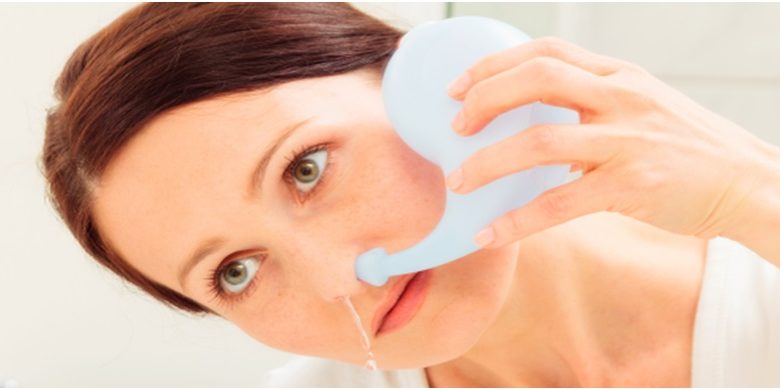8 Effective Ways to Relieve Allergy Symptoms

Allergies got you down? It can be challenging to find relief if you suffer from seasonal allergies or pet allergies. Don’t let a pollen allergy keep you inside on a warm spring day or a pet allergy stop you from morning kitty cuddles.
In addition to over-the-counter allergy medication, small lifestyle changes can help you live comfortably even when struggling with your allergies. You can irrigate your sinuses without Neti Pot to relieve congestion and add moisture into the air with an ultrasonic cool humidifier, making breathing easier.
How to Recognize If You Have Allergies
Many symptoms are similar to those of a common cold:
- Sneezing
- Sinus Congestion
- Runny Nose
- Scratchy throat
However, unlike the common cold, allergies occur whenever you are exposed to an allergen.
Common allergens include:
- Pollen
- Ragweed
- Mold or Mildew
- Dust
- Pet Dander
Allergies will usually not cause a fever, body aches, or a wet cough. If you have any of those symptoms chances are you have a cold, and the symptoms should clear up in about a week.
Another easy way to tell is if there is itching, it may be allergies.
- Irritated, red, itchy eyes
- Itchy Skin
- Itchy Ears
Although many people experience allergies in the spring or summer when pollen counts are exceptionally high, many also experience seasonal allergies in the fall during ragweed season. Pet dander could cause allergy symptoms at any time of year.
Develop an awareness of what may trigger your allergies to help you avoid what causes your symptoms. These eight effective ways can help you find relief from your allergy symptoms, no matter the cause.
- Consistently Take Oral Antihistamines
There are many options for non-drowsy oral antihistamines that can combat allergy symptoms.
- Citrine, name brand Zyrtec
- Desloratadine, name brand Clarinex
- Loratadine, name brand Claritin
- Fexofenadine, name brand Allegra
By taking your medication before exposure to the allergen, you may be able to prevent symptoms from occurring. For example, if you always suffer allergies in the spring, take allergy medication at the beginning of the season and remain consistent until the pollen count drops.
- Allergy Eye Drops
Sometimes an oral medication alone is not enough to protect your eyes from allergens. Antihistamine eye drops can relieve irritated, runny, or itchy eyes. Unlike oral medication, eye drops will work almost immediately to soothe the eyes and provide relief.
Keep allergy eye drops in your car or purse to administer if you come into contact with your allergen. You can use them multiple times a day if your eyes continue to become irritated. You may need them after petting a dog or a walk in the park.
- Nasal Spray
Nasal spray can also provide immediate relief to congested sinuses. Unlike oral antihistamines, nasal sprays will only treat allergy symptoms associated with the nose. They are best for short-term relief rather than daily use.
- Clear Sinuses without Neti Pot
Alternatively, you could use a Neti Pot to clear your sinuses home. The Nettie Pot will deliver salinated water into your nostril and rinse out all the allergens. This method can decrease the need for medicated nasal sprays while decreasing inflammation in irritated nasal passageways.
Create a saline solution with the sterilized water and either kosher salt or sea salt – never use iodized salt (table salt) in your Netti Pot. Never use tap water in your Netti Pot. Only use sterilized water to avoid the risk of infection.
- Use an Ultrasonic Cool Humidifier
Help fight allergies while you sleep by adding an ultrasonic cool humidifier to your bedroom. Dry air can further irritate nasal passages and make it even more difficult to get a good night’s sleep. An ultrasonic cool humidifier will add essential moisture back into the air to help you breathe easier.
Unlike warm mist humidifiers, ultrasonic cool humidifiers don’t have a burn risk since they do not need to heat the water to create steam. Ultrasonic cool humidifiers are extremely quiet and adjustable, allowing you to choose how much moisture you add to the air.
- Keep Windows Closed
It can be tempting to open your windows to let in the fresh spring or summer breeze, but that can also let pollen enter your home and aggravate your allergies. If pollen is an allergy trigger, keep your windows closed on days with a high pollen count. The less pollen that enters your home, the less likely you’ll be sneezing and sniffling all day.
- Install HEPA Filters
HEPA (high particulate efficiency air) filters can trap airborne particulars like dust, mold, pollen, and pet dander and keep them out of the air you breathe. You can get air filters for individual rooms in your home or apartment or choose HEPA filters to install in your HVAC system to keep the whole home free of allergens.
You can also find vacuum cleaners with HEPA filters to help you keep allergens off your sofa and carpet. Traditional vacuums can stir up dust and pet dander and release them back into your space.
- Talk to Your Doctor
If you’re regularly taking oral medications, using an ultrasonic cool humidifier, and have installed HEPA filters and still aren’t finding relief from allergy symptoms, talk to your doctor about what other methods can help you find relief.

